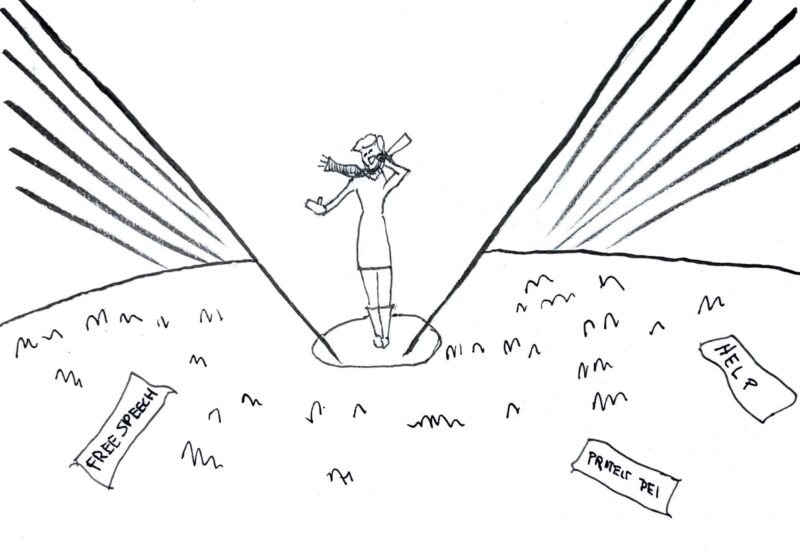“Birds of Prey and the Fabulous Emancipation of One Harley Quinn” feels like Margot Robbie went shopping through DC Comics’ vast selection of female characters, took the ones she wanted, and then tried to stitch them all together. While “Birds of Prey” is a win in some ways for women in the film industry, it isn’t the home run some may think it is.
The result is the female superhero team, the “Birds of Prey,” who are sacrificed in Robbie’s quest to make a kickass women-led movie. “The Birds of Prey” is a comic book series following a female superhero team led by computer hacker Barabra Gordon. In the film, Robbie contradicts herself by straying away from the source material and inserting her character into a place where she doesn’t belong.
I enjoyed the fight scenes in “Birds of Prey,” like the one with Black Canary in a fistfight (more of a leg-fight, really) in an alleyway. I applaud “Birds of Prey” as well for writing female action characters the way everyone should. When a woman does something cool or wins on screen, there does not have to be a line about their womanhood.
The problem with “Birds of Prey” is that it’s a Harley Quinn movie in the guise of a Birds of Prey film. I have no problem when characters are not carbon copies of source material, but I do have a problem when rich histories are used as step stools for a Harley-show.
If you hadn’t guessed already, Harley Quinn has nothing to do with the birds. In fact, the most important bird — Barbara Gordon, also known as Oracle — is missing in this movie’s flock.
Okay, time for some background. Barbara Gordon was originally introduced as Batgirl in 1967. She became a popular character, regularly teaming up with Batman and Robin, and serving as a U.S. Congresswoman until she hung up her cape in 1988. She was used as a step stone in one of the most famous Batman stories, “The Killing Joke.” In this story, in an attempt to drive her father — bat-ally Commissioner Gordon insane — the Joker shoots Barbara Gordon, paralyzing her from the waist down, undresses her, takes pictures of her bleeding body, and then presents them to Gordon. According to a 2004 issue of Wizard Magazine, when writer Alan Moore asked if he could injure Barbara, the editor replied, “Yeah, okay, cripple the bitch.”
In an effort to save the character from fading into history, writers Kim Yale and John Ostrander wrote Barbara Gordon into the position of Oracle, a hacking, information-guru of the DC Comics universe, who helps superheroes with her intel acquisition skills. She became one of the first disabled superheroes and a very important character to the DC Comics universe. In 1996, Gordon teams up with Dinah Lance, effectively forming the Birds of Prey.
Barbara’s absence is one of reasons Birds of Prey feels wrong, and unfortunately she isn’t the only character who is betrayed by this movie. Cassandra Cain — also known as Orphan — is stripped of her power, unrecognizable compared to the comics’ good-willed warrior. Renee Montoya, the trusted cop, loses all her firepower as well. Black Canary and Huntress, played respectively by Jurnee Smollet-Bell and Mary Elizabeth Winstead, are the secret weapons of this movie, and I wish I saw a lot more of them.
I may be bitter because I knew what this movie could be. I grew up on the foundation of Birds of Prey. They were my Luke Skywalker, Superman, and Indiana Jones. It is a sin to strip the Birds of Prey of their wings and true stories. Anyway, if the point of the movie is to show that Harley can stand on her own two feet, why did the Birds of Prey need to prop her up?
Barbara Gordon depicts what it means to be strong, intelligent, and badass. The “Birds of Prey” represented what it meant to be heroes and have fun. I encourage you to read the original “Birds of Prey” and delve into their fantastic and decadent stories. And if you’re looking for a Harley story that is actually about her learning how to be her own person, I recommend you check out the new and ongoing brilliant Harley animated show on DC Universe.
For a movie about female representation and heroes, it’s ironic that they had to suppress some women along the way.



